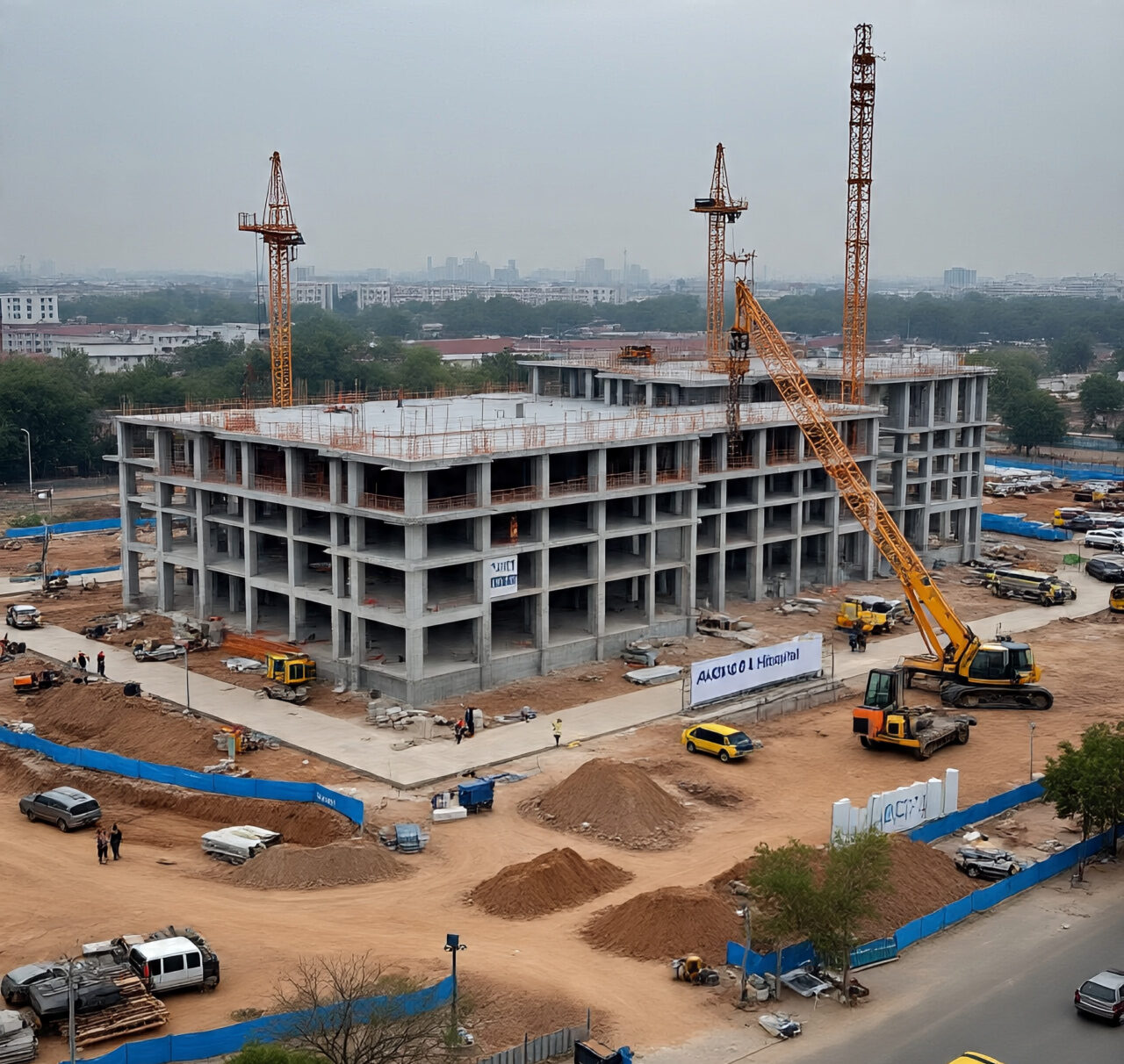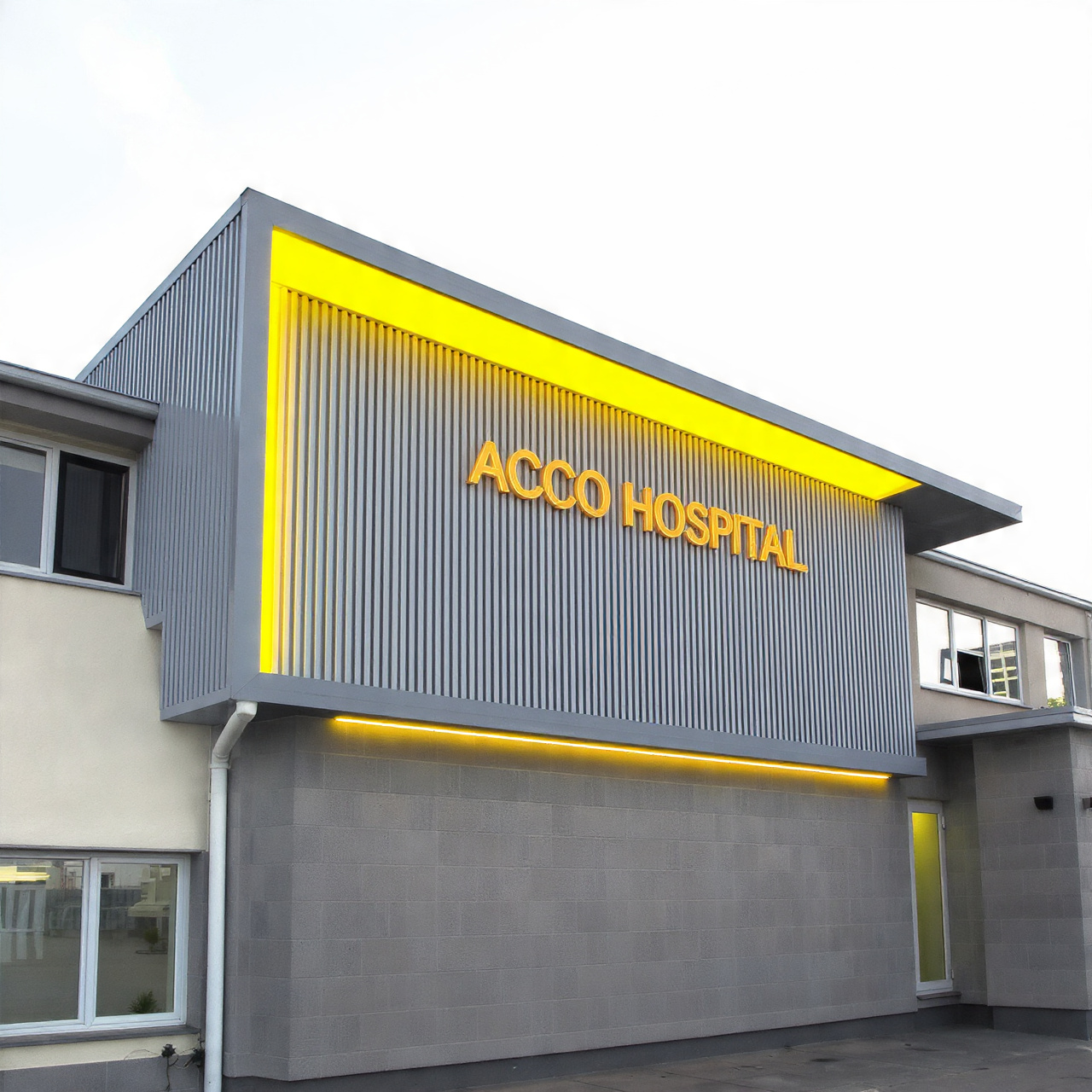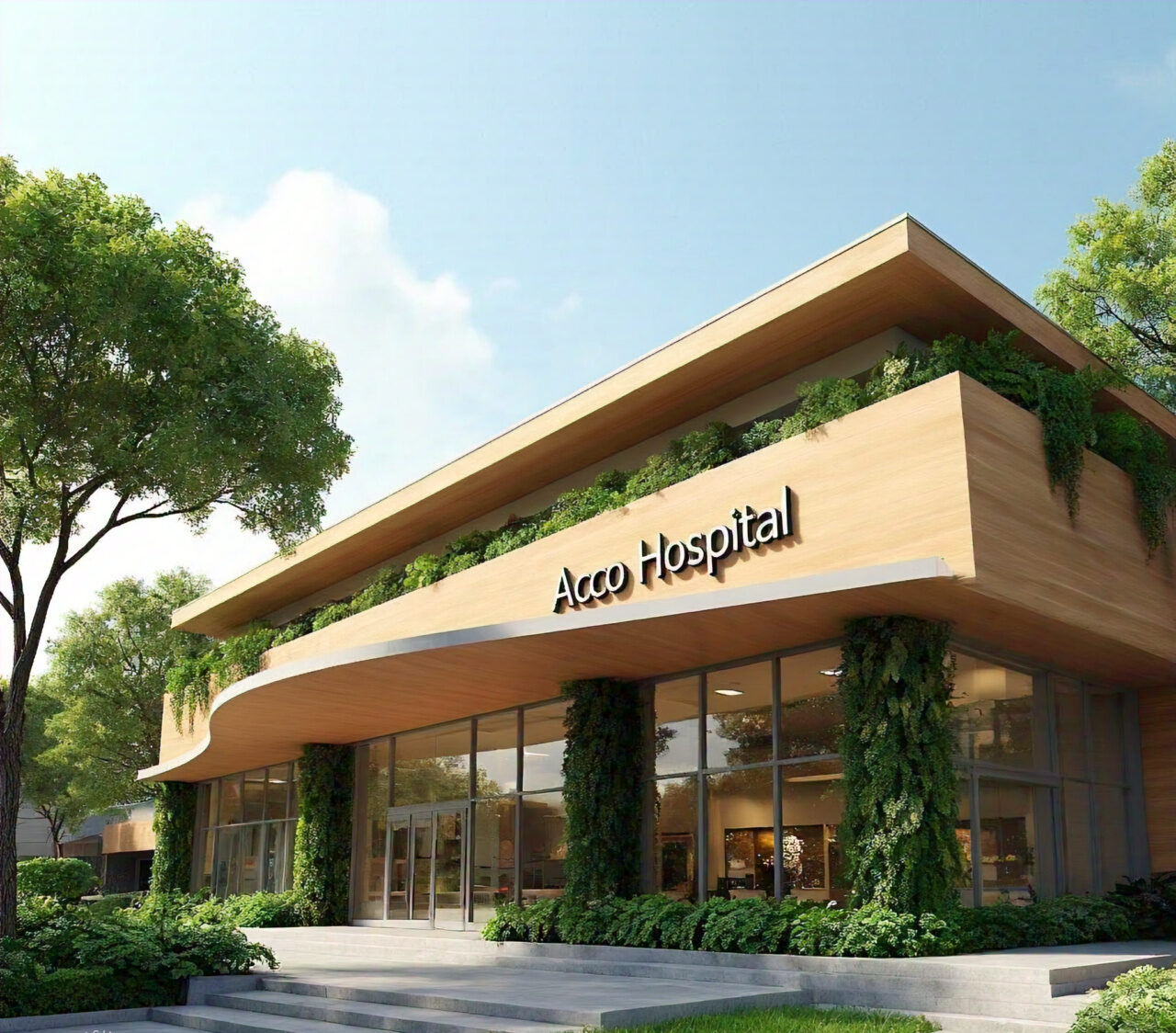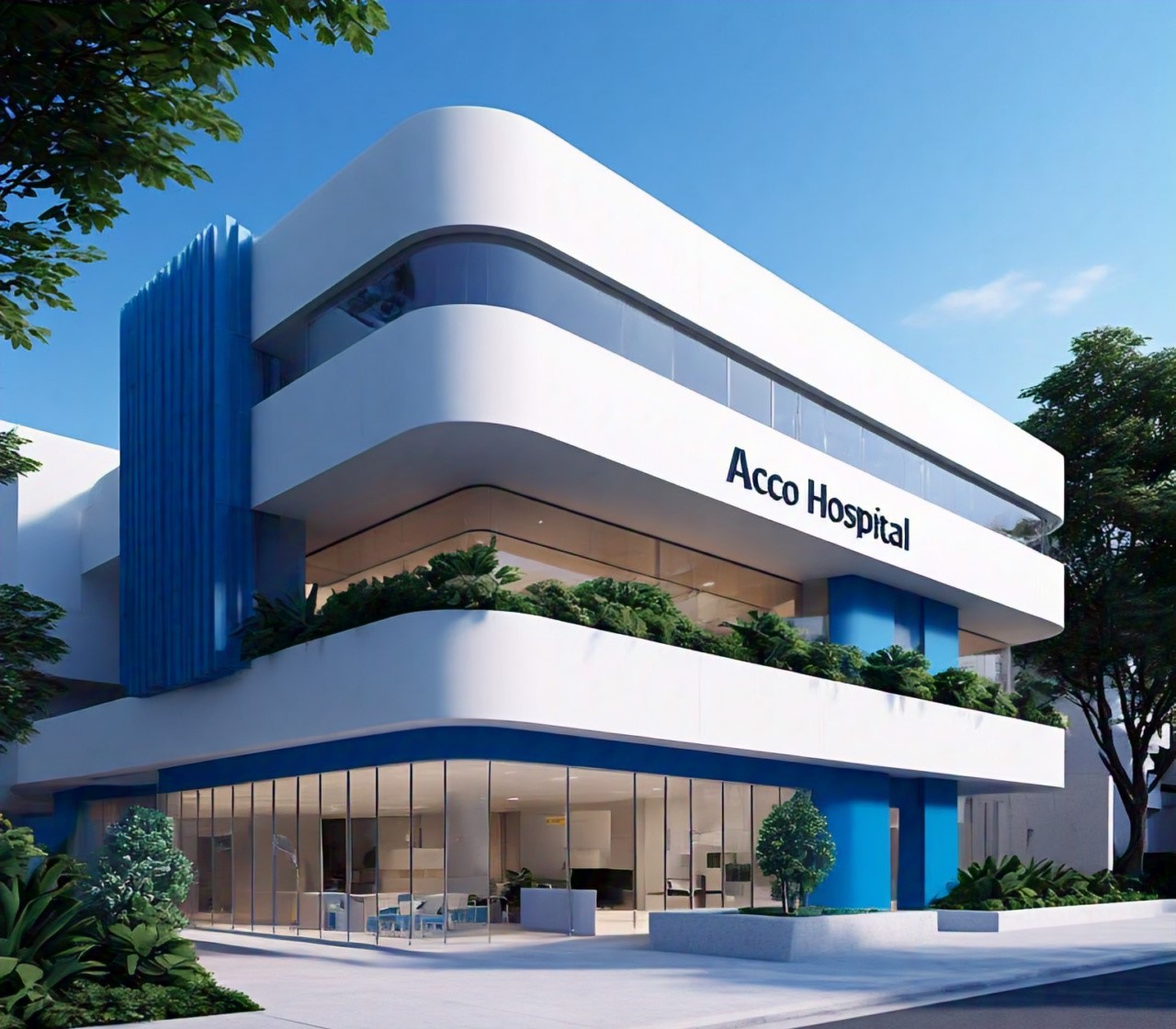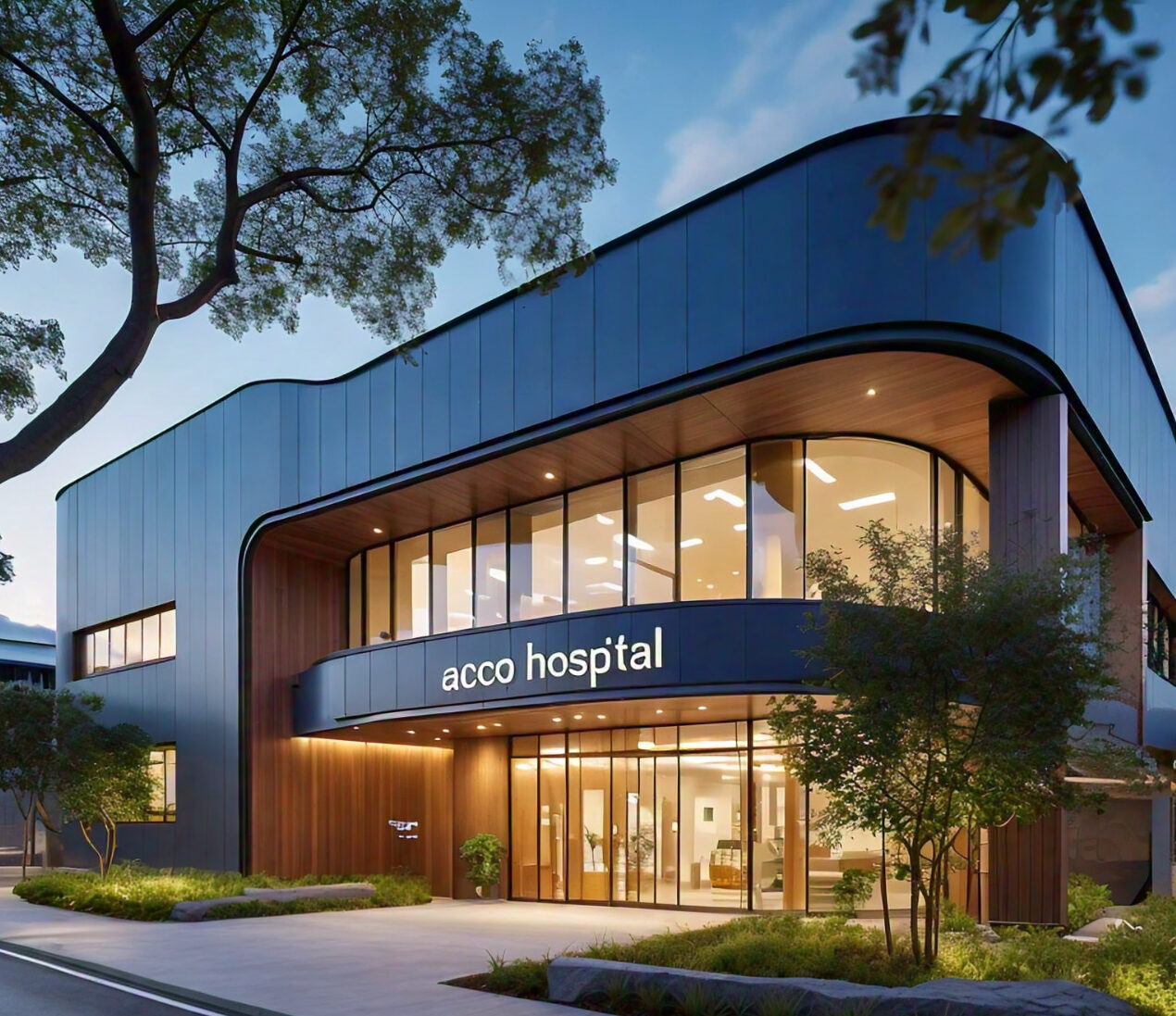
Patient-Centered Hospital Design: Comfort Meets Functionality – ACCO Construction

Introduction to ACCO Construction
ACCO Construction is a leading name in hospital design and construction across Pakistan, known for delivering modern, efficient, and patient-focused healthcare environments. Based in Lahore, ACCO has extensive experience in designing and constructing hospitals, clinics, laboratories, and healthcare centers that meet international standards for functionality, hygiene, and patient comfort.
Our team of architects, engineers, and healthcare design experts ensures that every hospital we build reflects our core philosophy — “Creating Healing Spaces Where Comfort Meets Care.”
With decades of industry expertise, ACCO Construction takes pride in offering turnkey healthcare construction services, from conceptual planning and architectural design to execution and commissioning, ensuring seamless delivery for our clients nationwide.
🏥 Introduction to the Topic: What is Patient-Centered Hospital Design?
In today’s healthcare landscape, hospitals are no longer seen as just treatment facilities — they are healing environments where comfort, design, and emotional well-being play a major role in recovery.
Patient-centered hospital design focuses on creating spaces that promote healing by prioritizing the needs, comfort, and safety of patients, families, and healthcare providers.
In Pakistan, where healthcare infrastructure is rapidly expanding, the demand for well-planned, patient-focused hospital design is higher than ever. From DHA Lahore to Islamabad and Karachi, new medical facilities are seeking designs that reflect global standards — emphasizing natural light, privacy, accessibility, infection control, and operational efficiency.
🩺 Why Patient-Centered Design Matters in Pakistan
Healthcare in Pakistan is evolving. With the rise of private hospitals, specialized clinics, and teaching institutions, there’s a strong shift toward quality care and improved patient experience.
A thoughtfully designed hospital can:
Enhance patient satisfaction by improving comfort and convenience.
Boost staff productivity with ergonomic layouts.
Reduce infection risks through better air circulation and hygiene planning.
Encourage faster recovery with calming and therapeutic environments.
According to a study by ArchDaily and WHO’s healthcare design guidelines, hospitals that prioritize patient-centered principles have 15–30% higher recovery rates and greater patient trust.
🧱 Key Elements of Patient-Centered Hospital Design
Below are the most important design principles ACCO Construction implements in its hospital projects across Pakistan:
🌞 1. Healing Environment & Comfort
A hospital’s physical environment significantly impacts patient well-being.
At ACCO, we design spaces that are:
Filled with natural light for positive mood and reduced stress.
Noise-controlled through smart acoustic panels.
Temperature-regulated with advanced HVAC systems.
Aesthetically soothing, using neutral colors and biophilic (nature-inspired) designs.
💡 Example: The Indus Hospital Karachi and Shaukat Khanum Hospital Lahore have successfully incorporated healing design features that ACCO also integrates into its projects.
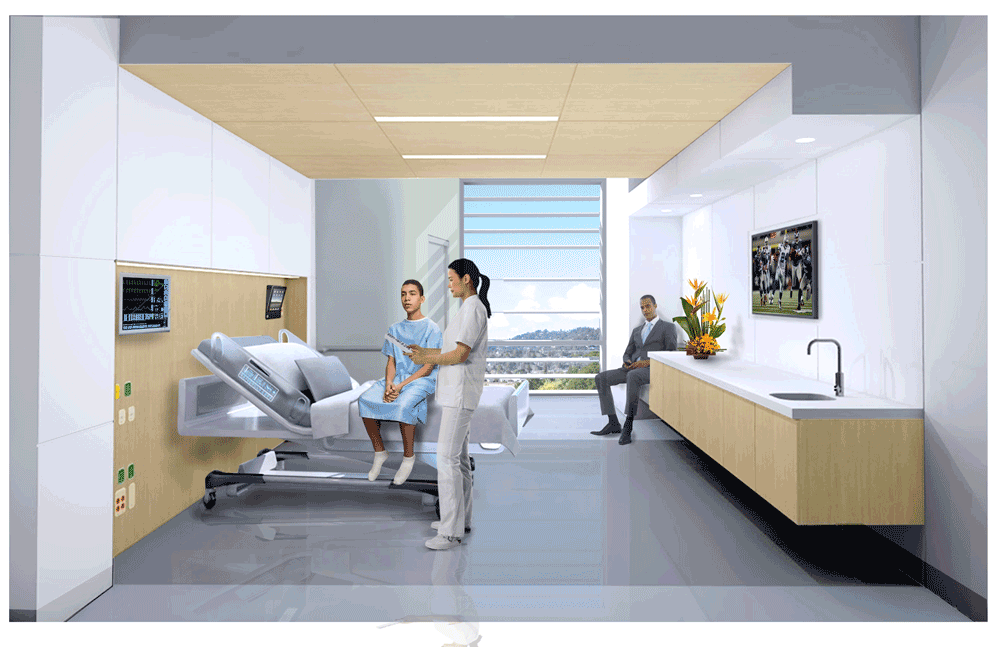
🚶 2. Efficient Space Planning
Efficient design reduces staff fatigue and improves service quality.
ACCO ensures:
Logical separation of clean and contaminated zones.
Shorter travel distances between patient rooms and nursing stations.
Smart storage for medical supplies and equipment.
Easy patient movement through spacious corridors and signage.
♿ 3. Accessibility and Inclusivity
Accessibility is essential for all types of users — patients, visitors, and staff.
Our hospital designs comply with Pakistan Building Code (PBC) accessibility guidelines and international ADA standards, ensuring:
Ramp access for wheelchairs.
Automatic doors for emergency access.
Clear visual signage for wayfinding.
Tactile paths for visually impaired visitors.
🌿 4. Sustainability and Energy Efficiency
Sustainable hospital design saves operational costs and supports a healthier planet. ACCO incorporates:
Energy-efficient LED lighting systems.
Solar panels for backup power.
Efficient water management systems.
Green roofs and façades for temperature control.
These eco-friendly elements make ACCO projects both cost-effective and environmentally responsible.
🛋️ 5. Family & Visitor-Friendly Spaces
Healing involves not just patients, but families too.
Our designs include:
Comfortable waiting lounges and family areas.
Private consultation rooms for patient confidentiality.
Rest zones near wards for attendants.
This approach aligns with our goal of creating emotionally supportive healthcare environments.
💡 6. Smart Technology Integration
Modern hospitals depend on digital infrastructure for efficiency and safety.
ACCO integrates:
Building Management Systems (BMS) for monitoring HVAC, lighting, and security.
Smart nurse call systems.
Automated access control and fire detection systems.
Digital patient information systems to improve communication.
🧰 7. Hygiene & Infection Control
One of the most crucial aspects of hospital design. ACCO ensures:
Seamless surfaces and antimicrobial materials.
Proper zoning to separate sterile and non-sterile areas.
HEPA filtration systems in operating theaters and ICUs.
Touch-free fixtures in bathrooms and isolation wards.
These practices help maintain international hygiene standards, protecting both patients and medical staff.
⚖️ Pros & Cons of Patient-Centered Design
✅ Pros
Enhances patient satisfaction and trust
Reduces hospital stay duration
Improves staff efficiency
Promotes better hygiene and safety
Adds long-term value to hospital infrastructure
⚠️ Cons
Slightly higher initial construction costs
Requires specialized architectural planning
Longer design approval process
Ongoing maintenance for advanced systems
💬 However, the long-term operational benefits far outweigh the initial investment.
📊 Comparison: Traditional vs. Patient-Centered Hospital Design
| Feature | Traditional Design | Patient-Centered Design |
|---|---|---|
| Patient Experience | Basic, functional | Healing-focused, comfortable |
| Energy Use | High | Optimized with green solutions |
| Space Efficiency | Limited | Ergonomically planned |
| Technology | Minimal | Smart systems integrated |
| Hygiene & Safety | Standard | Advanced infection control |
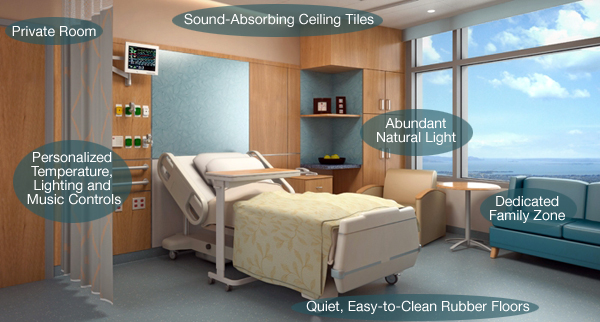
🧠 Trends in Hospital Design (2025 & Beyond)
According to ArchDaily and Healthcare Design Magazine, the latest global trends include:
Modular & Prefabricated Construction – Faster delivery with quality control.
AI-driven Facility Management – Predictive maintenance and automation.
Telemedicine Infrastructure – Dedicated zones for online consultations.
Sustainable Architecture – Focus on renewable energy use and green certifications.
ACCO Construction stays ahead by integrating these innovations into every hospital project we design and build in Pakistan.
❓ Frequently Asked Questions (FAQs)
1. What is the goal of patient-centered hospital design?
To create an environment that enhances comfort, safety, and healing for patients while optimizing functionality for medical staff.
2. Why is patient-centered design important in Pakistan?
Because the healthcare sector is rapidly evolving, and people now expect modern, hygienic, and emotionally supportive facilities.
3. Does ACCO provide turnkey hospital construction services?
Yes, ACCO offers complete design-and-build solutions, from architecture to MEP and finishing, across Pakistan.
4. How long does it take to build a hospital with ACCO?
Depending on the size, complexity, and approvals, a mid-sized hospital project typically takes 10–18 months.
5. How can I get a quote for hospital construction?
You can contact ACCO via info@acco.com.pk or WhatsApp: +92 322 8000190 for a free consultation and quotation.
🧩 Final Verdict
Patient-centered hospital design is no longer a luxury — it’s a necessity for modern healthcare. It brings together comfort, safety, sustainability, and technology to create a truly healing environment.
If you’re planning to design or construct a hospital in Lahore, Karachi, Islamabad, or any city in Pakistan, partnering with ACCO Construction ensures your project meets international standards and local compliance.
ACCO’s expertise in turnkey hospital design and construction makes it a trusted name for private, government, and institutional healthcare projects across the country.
🔗 Internal Links
🌐 External Links
📞 Call to Action
Ready to build your modern, patient-centered hospital?
👉 Contact ACCO Construction today for a free consultation!
📧 Email: info@acco.com.pk
📱 WhatsApp: +92 322 8000190
🌐 Website: www.acco.com.pk
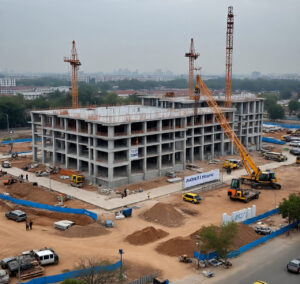
Smart Hospital Construction – Building for Tomorrow’s Healthcare | ACCO Construction
🏗️ Introduction to ACCO Construction ACCO Construction is a premier construction and engineering company based in Gulberg-III, Lahore, specializing in modern hospital design and smart healthcare infrastructure. With decades of experience in turnkey construction, architectural design, and prefabricated healthcare facilities,
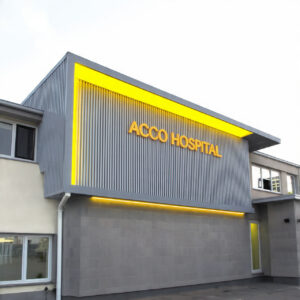
The Evolution of Modern Hospital Design: From Concept to Completion | ACCO Construction
Introduction to ACCO Construction ACCO Construction is one of Pakistan’s leading construction and engineering firms, headquartered in Gulberg-III, Lahore. With decades of experience in hospital design, healthcare infrastructure, commercial, and residential construction, ACCO has built a trusted name through innovation,
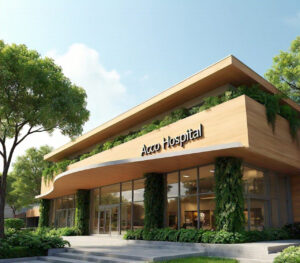
Innovative Hospital Architecture for the Future of Healthcare
Introduction to ACCO Construction ACCO Construction is one of Pakistan’s most trusted and experienced construction firms, renowned for modern hospital architecture, design, and turnkey construction services. Based in Lahore, ACCO has over two decades of experience in delivering high-quality healthcare,
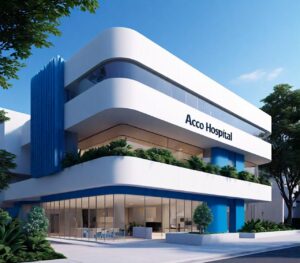
Modern Hospital Design & Construction – Transforming Healthcare Infrastructure
🏗️ Introduction to ACCO Construction ACCO Construction is a leading name in modern hospital design and construction in Pakistan, specializing in state-of-the-art healthcare infrastructure. With decades of experience in architectural design, structural development, and turnkey hospital projects, ACCO has successfully

Hospital Renovation & Expansion: Modernizing Healthcare Facilities in Pakistan
Introduction to ACCO Construction ACCO Construction is one of Pakistan’s leading construction and design firms, renowned for delivering state-of-the-art hospital and healthcare infrastructure. Based in Lahore, with operations across Karachi, Islamabad, and other major cities, ACCO has earned a strong
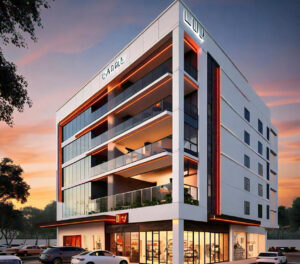
Future-Ready Commercial Plaza Construction Services in Pakistan | ACCO Construction
🏗️ Introduction to ACCO Construction ACCO Construction is one of Pakistan’s most trusted and innovative construction companies, specializing in commercial, industrial, and residential building projects. With over two decades of excellence in Lahore, Karachi, and Islamabad, ACCO has earned a

Future-Ready Hospital Construction: Trends & Innovations – ACCO Construction
🏗️ Introduction to ACCO Construction ACCO Construction stands as one of Pakistan’s most trusted names in hospital design and construction, known for building state-of-the-art medical facilities that integrate modern technology, sustainability, and patient-centered design. Headquartered in Lahore, ACCO Construction has

Patient-Centered Hospital Design: Comfort Meets Functionality – ACCO Construction
Introduction to ACCO Construction ACCO Construction is a leading name in hospital design and construction across Pakistan, known for delivering modern, efficient, and patient-focused healthcare environments. Based in Lahore, ACCO has extensive experience in designing and constructing hospitals, clinics, laboratories,

Best Commercial Plaza Developers in Pakistan | ACCO Construction
Introduction to ACCO Construction ACCO Construction is Pakistan’s leading commercial construction and development company, headquartered in Lahore with operations across Karachi, Islamabad, Faisalabad, Multan, and Rawalpindi. With over 20 years of industry experience, ACCO specializes in commercial plazas, high-rise buildings,
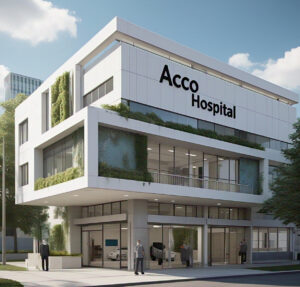
Smart Hospital Design: Integrating Technology & Efficiency | ACCO Construction
Introduction to ACCO Construction ACCO Construction is one of Pakistan’s leading design and construction firms, recognized for delivering innovative, efficient, and sustainable healthcare infrastructure. Based in Lahore, with projects spanning Karachi, Islamabad, and Multan, ACCO specializes in hospital design, healthcare
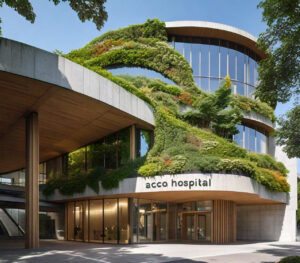
Green Hospital Architecture: Sustainable Design & Construction | ACCO Construction
🏗️ Introduction to ACCO Construction ACCO Construction stands as one of Pakistan’s most trusted names in hospital design, planning, and construction. Headquartered in Gulberg-III, Lahore, ACCO has built its reputation through innovation, precision, and sustainability across healthcare and commercial infrastructure.

🏥 Hospital Project Management: From Blueprint to Handover | ACCO Construction
🏗️ Introduction to ACCO Construction ACCO Construction is a leading name in hospital design and construction in Pakistan, known for its excellence in project management, architectural design, and turnkey delivery.With decades of experience in Lahore and nationwide, ACCO Construction specializes

🏢 Commercial Plaza Interior Design & Finishing by ACCO Construction
🏗️ Introduction to ACCO Construction ACCO Construction, a leading construction and engineering company based in Lahore, Pakistan, is recognized for its excellence in commercial, residential, and institutional building projects. With decades of experience in the design, build, and finishing sectors,
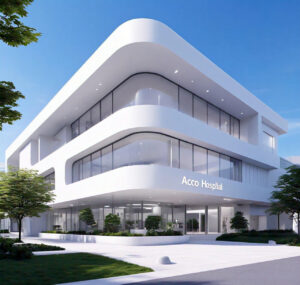
🏥 Hospital Design Standards & Compliance: Ensuring Quality Construction | ACCO Construction
🏗️ Introduction to ACCO Construction ACCO Construction is a leading hospital design and construction company in Lahore, Pakistan, known for its expertise in healthcare infrastructure, turnkey project delivery, and modern architectural innovation.With over two decades of experience in healthcare design,

🏥 Turnkey Hospital Construction Services in Pakistan – ACCO Construction Experts
🏗️ Introduction to ACCO Construction ACCO Construction is Pakistan’s leading hospital design and construction company, based in Gulberg-III, Lahore. With over two decades of experience in healthcare infrastructure, architecture, and engineering, ACCO has successfully delivered numerous turnkey hospital projects across
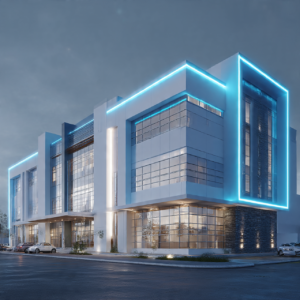
🏥 Planning & Budgeting for Hospital Design Projects – ACCO Construction Experts
🏗️ Introduction to ACCO Construction ACCO Construction is one of Pakistan’s leading construction and engineering companies, headquartered in Gulberg-III, Lahore. With decades of experience in hospital design and construction, ACCO has become a trusted partner for public and private healthcare
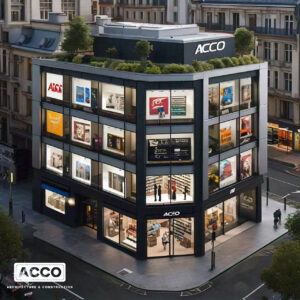
High-Rise Commercial Plaza Design & Construction in Lahore | ACCO Construction
🏗️ Introduction to ACCO Construction ACCO Construction is one of Pakistan’s leading construction and engineering firms based in Lahore, with decades of experience delivering high-rise, commercial, residential, and turnkey construction projects. Over the years, ACCO has earned a strong reputation

Hospital Construction Cost in Pakistan: A Complete Guide | ACCO Construction
🏗️ Introduction to ACCO Construction ACCO Construction is one of Pakistan’s most reliable and professional construction companies, specializing in hospital design and construction, healthcare facilities, commercial complexes, and turnkey building solutions. With over 20 years of industry experience, ACCO has
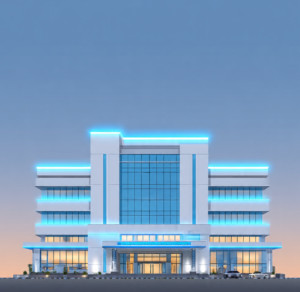
🚑 Emergency & Trauma Center Design: Optimizing Efficiency and Safety | ACCO Constructio
Introduction to ACCO Construction ACCO Construction, based in Lahore, Pakistan, is one of the country’s most trusted names in healthcare infrastructure design and construction. With over 20 years of experience, ACCO specializes in hospital design, modular healthcare buildings, MEP engineering,
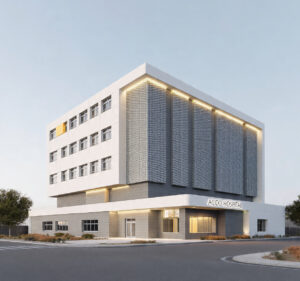
🏥 Modular Hospital Construction: Flexible and Cost-Effective Solutions | ACCO Construction
Introduction to ACCO Construction ACCO Construction is one of Pakistan’s leading design-build and construction companies, headquartered in Lahore. With over two decades of experience in hospital, healthcare, and commercial building projects, ACCO has earned a strong reputation for delivering modern,

